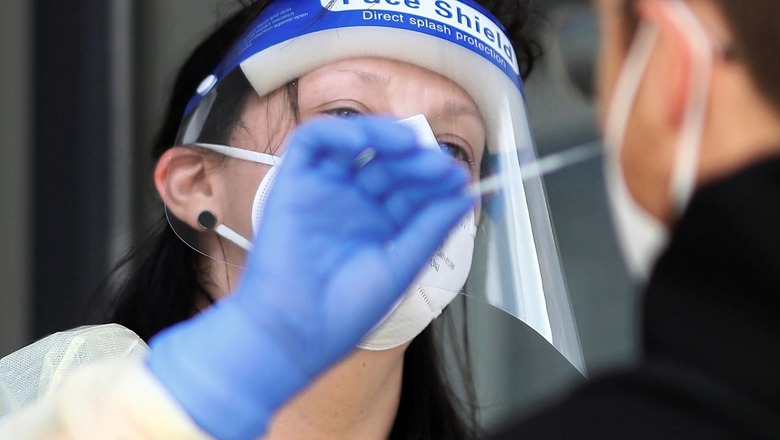
views
Germany imposed new restrictions on Friday after German Chancellor Olaf Scholz met with state leaders as Covid-19 cases continued to surge in Germany spurred by the Omicron variant, according to reports by news agencies.
In order to visit restaurants, people now have to either be fully vaccinated or present a report showing that they have tested negative for Covid-19 recently or considered recovered or present proof that they have received a booster dose of the Covid-19 vaccine.
Scholz defended the restrictions and said that these were necessary to curb the spread of the variant which replaced Delta to become the dominant strain in several nations in the European Union (EU). “It’s a strict rule, but it’s a necessary one that will help us better control infections, in future, than is currently the case,” Scholz was quoted as saying by news agency Deutsche Welle.
Another outcome of the meeting between Scholz and state leaders was the reduction in the isolation period for Covid-19 infected. The new rule says that people in Germany will now quarantine and self-isolate for 10 days. It can be further shortened to a week or seven days if the person is asymptomatic and receives a negative PCR test, which is carried out by a certified healthcare worker.
It also said that people who have taken a booster dose will not have to be quarantined if they have come in contact with anybody infected with Covid-19.
The leaders also decided to limit gatherings to a maximum of 10 persons, applicable only to those vaccinated or recovered. They said that those who are unvaccinated will be subjected to strict contact restrictions.
Germany recorded 56,335 new cases on January 7, according to data released by the Robert Koch Institute. The data also showed that 264 people succumbed to Covid-19 between January 6 and January 7. New cases and fresh fatalities, however, dipped compared to that of January 6. North Rhine-Westphalia state reported the highest number of new cases with 13,664 fresh cases in last 24 hours.
Germany has vaccinated 71% of its eligible population with both doses of the vaccine and has administered booster doses to 41% of the people. Newly elected German chancellor Olaf Scholz plans to vaccinate 80% of the people within January as his government aims to administer 30 million booster shots.
Read all the Latest News here



















Comments
0 comment